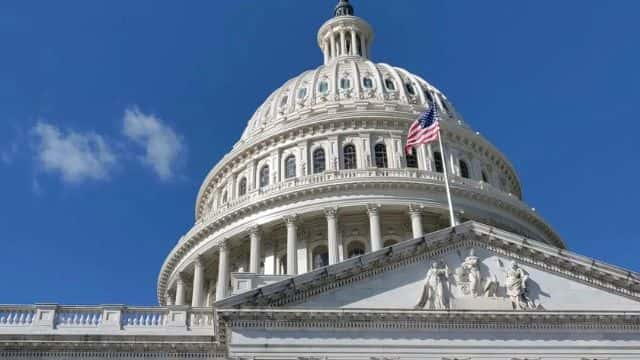Minors can receive presents without having to set up a separate trust according to a statute known as the Uniform Transfers to Minors Act, or UTMA. UTMA accounts can be a helpful tool to retain certain property in a child’s name so long as there is a designated adult custodian to monitor account operations.
UTMA was created to simply allow minors to receive property. Though not entirely identical, it shares several characteristics with the UGMA, or Uniform Gifts to Minors Act.
In contrast to UTMA, which offers the same advantages but also includes real estate and real estate, UGMA authorises a minor account to hold stocks, bonds, cash, and other common financial products.
Additionally, UTMA accounts are not tax-exempt. Dividends, interest, and capital gains derived from UTMA accounts that exceed $2,300 are taxed at the parent’s rate. The kiddie tax is a common name for this.
In some circumstances, if your child’s unearned income total is $11,000 or less, you may be able to include it on your income tax return (and not have to file an additional income tax return for the child).
Upon reaching a specific age, which varies from state to state, the minor’s UTMA account becomes their own property. The “age of termination” or “age of majority” is another name for this. The legal drinking age is typically 18 or 21, though this varies by state of residence.
When it comes to Social Security, UTMA funds are not regarded as resources that children requesting disability benefits may access. Logically, this makes sense.
The UTMA account shouldn’t be viewed as an “available resource” because the money is put in by someone other than the minor (often a parent or guardian) and the child doesn’t have instant access to or control over the assets in question.
However, all assets held in the minor’s name are then regarded as available for support until the minor reaches the age of termination.
The account custodian must be aware of this change because, if the UTMA balance is high, a minor child who has been receiving Social Security benefits for several years may suddenly have those benefits curtailed or stopped.

Typically, the parent or legal guardian of the underage beneficiary serves as the account’s custodian. Although a bank or trust company might be named custodian, this option is the most straightforward administratively.
However, this depends on the family dynamic. Up until the minor reaches the age of termination, the custodian has a duty of care and fiduciary responsibility to handle the account’s assets.
Build assets for young children: Kids frequently receive monetary gifts for a variety of events, such as birthdays and graduations, and custodial accounts offer for earlier investing and asset creation opportunities.
The parents or guardians can actively participate in this process if their child has a sizable UTMA account balance at the age of termination, which can have a significant impact on their life.
Unrestricted contributions: There are no donation caps, unlike many accounts with specific designations. This enables money to be given to a child by their parents, guardians, family members, or friends without worrying about their exceeding a set balance limit.
However, if a single person makes cumulative transfers to the minor that exceed the yearly gift exemption ($16,000 in 2022), they must declare the donation to the IRS.
Flexible spending: While deposits made to a UTMA account are regarded as irrevocable, custodians may withdraw money in specific situations as long as it is used to benefit the minor beneficiary.
When a kid reaches the legal age in their state, the UTMA account is dissolved, and the funds can then be utilised for any purpose.
The 529 plans, which demand that invested savings be used for approved educational expenses, and UTMA accounts have significant differences in this regard.
No substantial tax benefits UTMA accounts don’t provide any particular tax benefits, unlike many other possible college savings options like 529 plans and Roth IRAs.
This is significant, especially if the minor’s parents make extremely high incomes because it may result in a substantial child tax payment the following April.
The contributions are final: The money you deposit to a UTMA account is regarded as an irreversible gift, even though it is feasible to withdraw funds early if they are for the beneficiary’s specific, verifiable benefit.
This indicates that the funds are now the minor’s property and are being safeguarded by the custodian rather than being the property of the depositor. It’s best for everyone if you don’t think of UTMA funds as being equivalent to your own personal savings.
Resources provided will include UTMA/UGMA balances: This is true for both financial help and the computation of Social Security disability benefits.
When the minor beneficiary reaches the age of termination, the money from the UTMA transfers to their name alone and is viewed as a usable asset to determine a potential financial aid award.
Any recently released UTMA funds will also be taken into account for upcoming Social Security benefit payments if the youngster is handicapped.
Read More:-
- The Dollar Store’s Seven Best SNAP Purchase
- USDA Provides a $5 Million Grant for SNAP Investment to Increase Online EBT Food Stamp Acceptance
- The Tax Lawyer to a Pair of Billionaires Got Snagged by a Pinch
Although they don’t provide much in the way of tax savings, UTMA and UGMA accounts may be useful in some circumstances. Other accounts, like 529 plans and Roth IRAs, might help you save funds for a specific objective, like a future education.
However, UTMA and UGMA accounts are a viable option for those looking for another way to give a child a head start.
UTMA and UGMA accounts are helpful resources if you’re looking for an essentially limitless way to save money for your child. If you are chosen as a custodian, make sure you are aware of your fiduciary duties because you’ll want to follow the law while acting in your child’s best interests.


